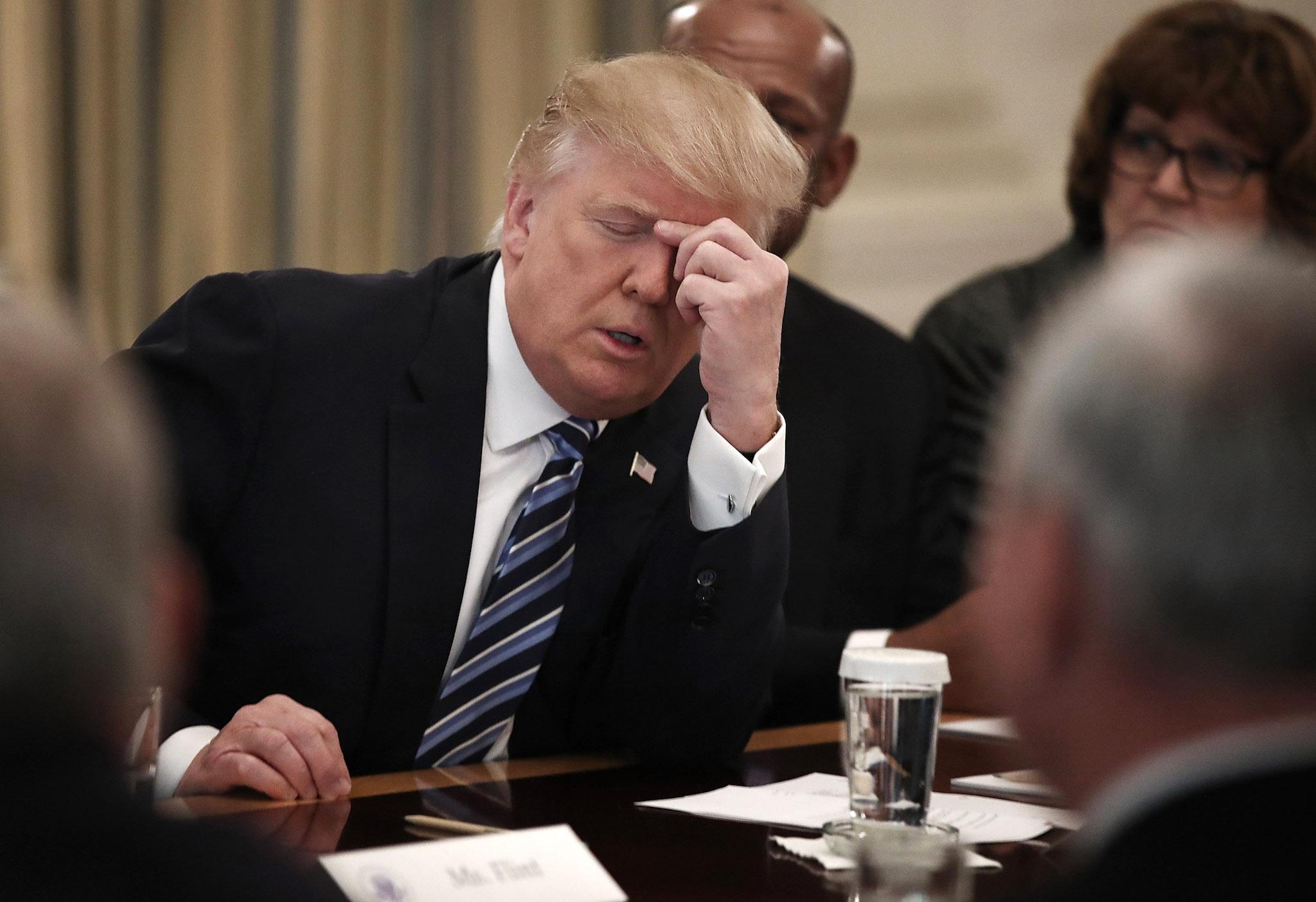Impeaching Donald Trump is a long shot - There's another way to protect the US

Your support helps us to tell the story
From reproductive rights to climate change to Big Tech, The Independent is on the ground when the story is developing. Whether it's investigating the financials of Elon Musk's pro-Trump PAC or producing our latest documentary, 'The A Word', which shines a light on the American women fighting for reproductive rights, we know how important it is to parse out the facts from the messaging.
At such a critical moment in US history, we need reporters on the ground. Your donation allows us to keep sending journalists to speak to both sides of the story.
The Independent is trusted by Americans across the entire political spectrum. And unlike many other quality news outlets, we choose not to lock Americans out of our reporting and analysis with paywalls. We believe quality journalism should be available to everyone, paid for by those who can afford it.
Your support makes all the difference.With the impeachment and removal of President Donald Trump a long shot at best, there is another way to provide the country some protection from our unfit president: congressional government. The idea may seem far-fetched in this era of the "imperial presidency," but there have been times in the nation's history, especially in the decades after the Civil War but also to a lesser extent during the 1920s, when Congress ran the show on many critical matters and the president dared take no action without the approval of powerful committee chairmen.
The clearest example of this, and the one most relevant to the current situation, was in 1865, when a Republican Congress seized control of federal administration of the defeated South from then-President Andrew Johnson. A Tennessean who saw himself as the defender of Southern white supremacy, Johnson refused to pursue the agenda of the Radical Republicans who wanted to break the power of the white ruling class in order to ensure the rights and the physical safety of newly freed blacks. When Johnson refused to compromise, Congress took charge. For some months, Congress wielded control not only over national policy but also over its implementation by the military.
Congressional power even reached into the Cabinet. The secretary of war, Edwin Stanton, shared Congress's aims and carried out congressional policies in the South, not Johnson's. When Johnson fired Stanton, the House voted to impeach him. Johnson escaped conviction in the Senate by one vote - thus showing the difficulty of removing a president even in extreme circumstances - but for some months Congress controlled the most important national policies and during that time prevented the president from undermining the achievements of the war.
There's no reason Congress could not do the same now. On some issues, it already has. On two important policies - sanctions on Russia and health care - a working majority of Democrats and Republicans in the Senate has already thwarted Trump. Another bipartisan majority appears to have formed against Trump's threat to shut down the government unless he gets significant funding for a wall along the Southern border. In fact, on any number of issues, there are enough anti-Trump Republicans in the Senate not only to block the president but also to push their own policies contrary to the president's - as was the case with Russia sanctions.
Congressional government would not have to address every question. On matters where Republicans and Democrats sharply disagree, there could be a truce or partisan business as usual. But on matters where they both see a threat to the nation's interests - from the president's encouragement of white supremacists, neo-Nazis and racist, law-breaking local government officials, to his appeasement of Russian President Vladimir Putin, to his efforts to impede criminal probes - Congress can wield the power of the purse. It can prevent a secretary of state from destroying the United States' diplomatic corps. It can provide support to officials who refuse to carry out irresponsible and dangerous directives. It can find some compromise on a few fiscal matters to prevent a demagogue from undermining the U.S. economy by defaulting on the debt.
All this could be done informally, with different majorities naturally emerging on different issues, as has already occurred. But it would be better if it were formal. In 1865, Congress established a bipartisan Joint Committee on Reconstruction to review and formulate policy toward the former Confederate states. Today, one or more joint committees could be formed to oversee those areas necessary to protect the country from the president's most dangerous excesses - a joint national security committee headed by the chairs and ranking members of the foreign relations, armed services and intelligence committees, for instance. The virtue of this arrangement would be that Congress would not merely react anew to each new threat. It would have a body in place that would be ready to respond, one that carried greater weight than individual committees and would therefore be more effective in deterring dangerous presidential actions.
Could Republicans possibly agree to such an arrangement? The party's leaders should at least think about it. Trump ran against them in 2016 and is now once again firing up his base to attack them. Party leaders do have another option besides being Trump punching bags - depriving him of as much power as possible while they can. It's a risky strategy, but a little bravery in the short term might pay off later. Is there any bravery to be found in Congress? Or as the great Radical Republican congressman Thaddeus Stevens asked in the spring of 1865, "Can't we collect bold men enough to lay the foundation for a party to take the helm of this government and keep it off the rocks?"
Washington Post
Join our commenting forum
Join thought-provoking conversations, follow other Independent readers and see their replies
Comments